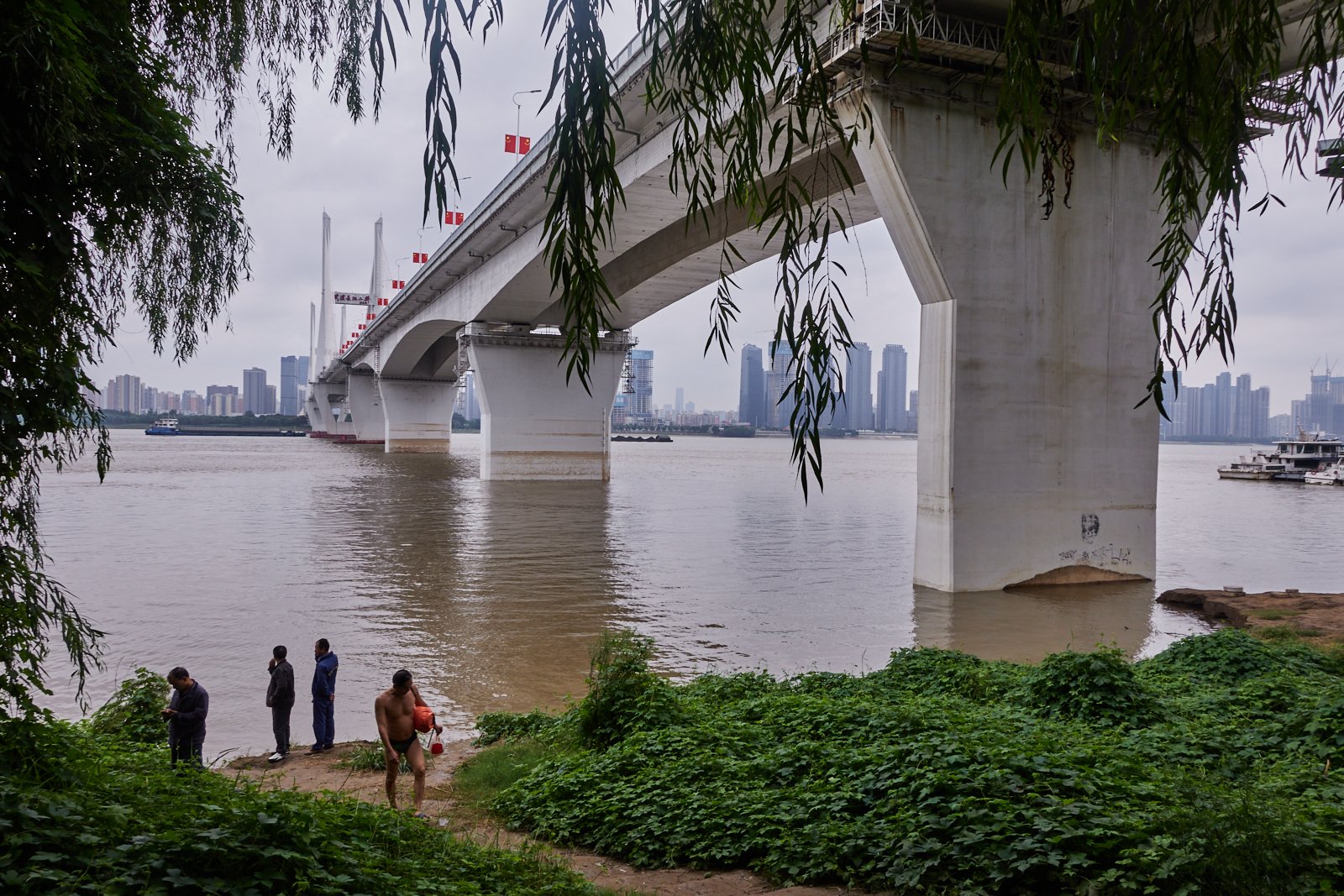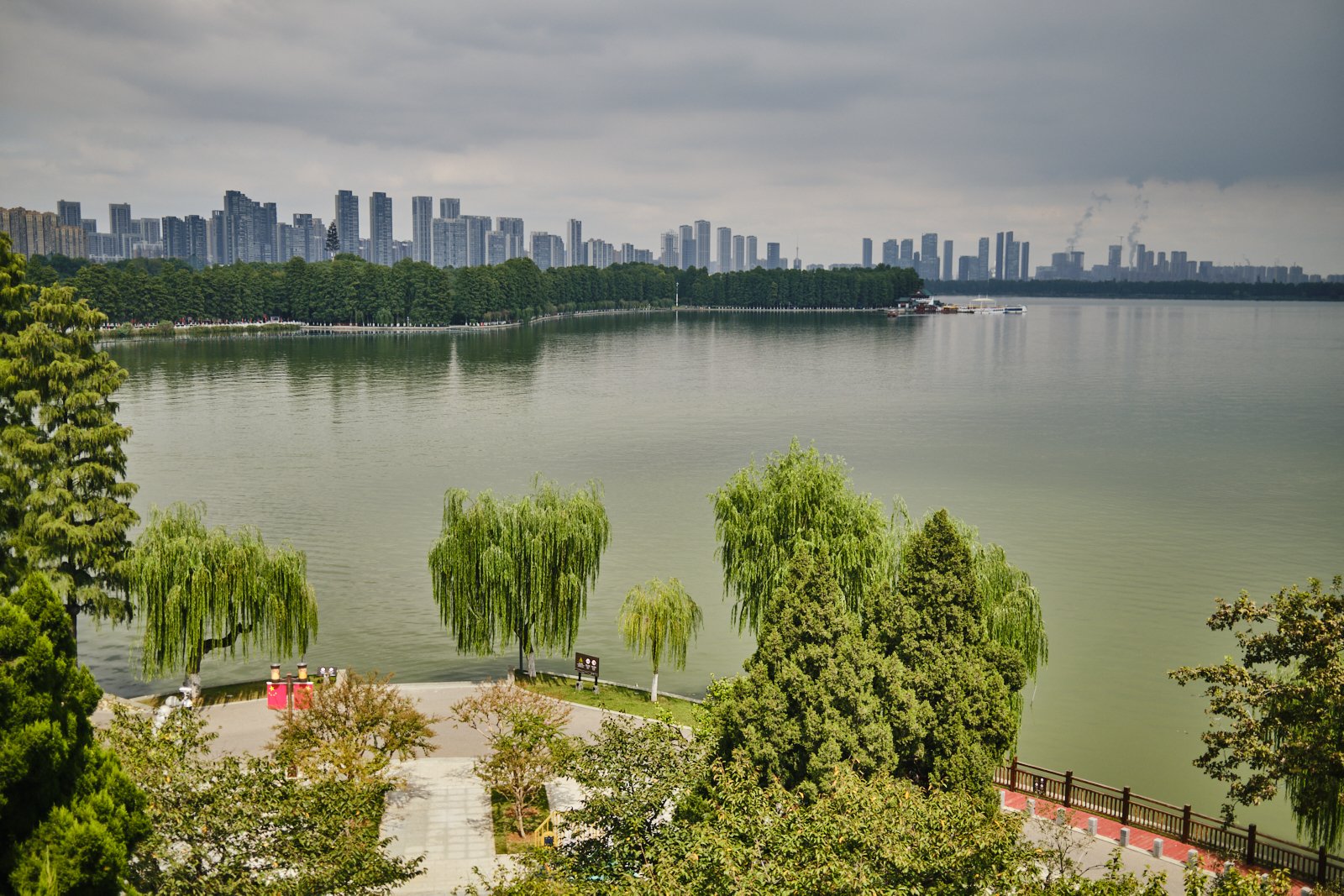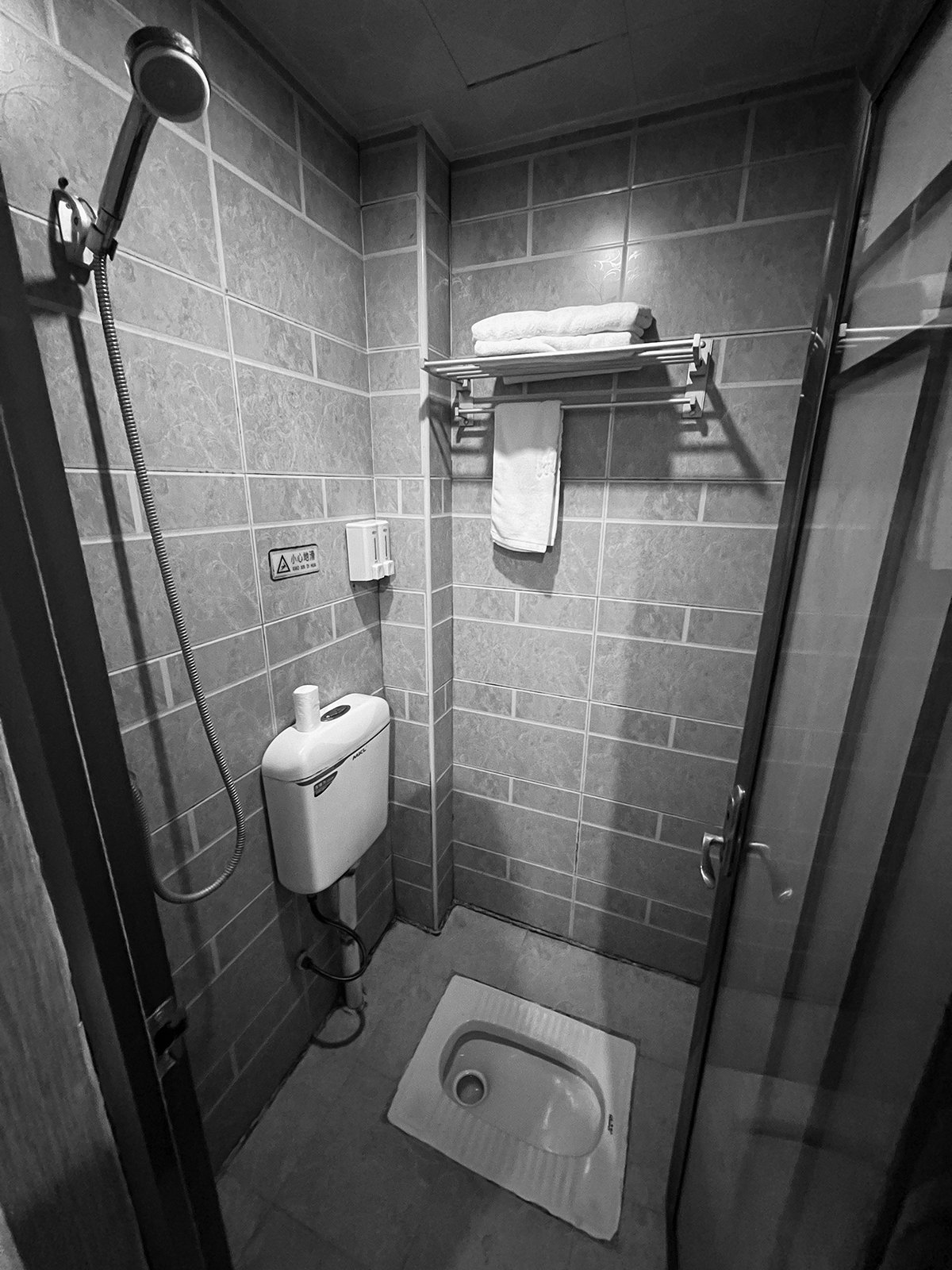China, 2023
Back to the place where it all began.
As an immigrant child who moved to the U.S. at the age of six, I remember making an active effort to repress my Chinese-ness to fit into this new country. However, between home and school, I grew up under the influence of two cultural identities that clashed often but ultimately molded me into the proud Chinese-American I am today. As I get older, I realize there’s so much I still don’t know. I want to make an active effort to piece together the cultural identity of my family and generations before.
The first time I returned to China at 15 years old, I was completely shocked by the difference in culture. I carried a notebook with me on the road, and fervently jotted down observations about every person, place, and interaction. Because any visit to China isn’t just another vacation to a foreign country; it’s a visit with family that comes with all its wonderful complexities and emotions. It’s a lot to experience, and this time was no different.
My mom and I pulled all the strings to squeeze in a quick visit to both sides of our family, making the most of the 8 days we had to pay our respects to my late grandpa and spend time with relatives we don’t get to see very often. I split my time between my maternal grandmother’s place in Xiaogan (my birthplace), my paternal grandmother’s place in Yichang (my dad’s hometown), and Wuhan (Covid’s birthplace lol my grandpa’s hometown). I played with my 7-year-old twin nephews, and spent as many mornings as possible strolling around the neighborhood street market with my grandmas.
Wuhan 武汉
In the early months of 2020, Wuhan quickly became a household name. The biggest city in central China, Wuhan can geographically be compared to Chicago, a city divided by a major river. It’s made up of three towns: Wuchang, Hankou, and Hanyang, and played a key role in China’s revolutionary past. In 1911, Dr. Sun Yat-sen, the “Father of the Nation,” led the Wuchang Uprising that began the revolution that resulted in the overthrow of China’s last imperial dynasty.
To me, Wuhan is where my grandpa’s family is from, and the place where my parents went to college (and met!) It’s the city in which my cousin’s family currently resides and sends their twins to school. It’s also where I lie and say I’m from sometimes, because no one’s heard of Xiaogan. It was only right that I actually spend some time there during this trip and sightsee. Luckily my aunt had a whole itinerary planned.
The Yangtze River and the Wuhan skyline.
In just 3 short days, we hit all the major tourist spots:
Hubu Alley 户部巷, a small historic pedestrian street full of snack stalls. We found a cafeteria-style spot with decent Hot Dry Noodles 热干面, but everything else tasted pretty meh.
Yellow Crane Tower 黄鹤楼, a tower with a long complex history. Wuhan’s most famous landmark, it was originally built as a watchtower, but then became the subject of many popular poems. It was destroyed and rebuilt numerous times, and what we see today is the modern day tower erected in the 1980s. My aunt booked a nighttime tour to see the tower decked up in lights, which I’ve never seen on a pagoda. There was also a light show projected onto the tower itself, and a gorgeous skyline to admire in every direction.
Jianghan Walking Street 江汉路步行街. Located in the center of Hankou, this century-old street was actually part of the British concession when Wuhan opened as a trading port during the Second Opium War. Now it’s a commercial shopping street, where I picked up souvenirs and packaged local delicacies to bring home.
Yangtze River 长江. This river needs no introduction, but Wuhan is home to the first permanent bridge that crosses the river, the Wuhan Yangtze Great Bridge. Parts of the riverfront were paved into nice walking and biking trails, and we enjoyed a casual afternoon walk as we watched old men in speedos go for their daily swims. Talk about cold plunge.
Hubei Provincial Museum 湖北省博物馆 is a national museum containing cultural relics, the most famous being the chime bells found in the tomb of Marquis Yi of Zeng. It’s the largest bronze musical instrument ever discovered, dating back to 433 B.C.
East Lake 东湖, a scenic area surrounded the largest urban lake in China. Will share more in the next section.
East Lake 东湖
East Lake is the largest city lake in China, and my favorite attraction in Wuhan. (It’s actually five times the size of Hangzhou’s famous West Lake.) We entered from the northwest side, a serene and peaceful scenic area with senior citizens taking relaxing walks along the stunning waterfront and baby kittens roaming the pathways.
There is a beautiful Poetry Reciting Pavilion 屈原纪念馆 built to honor the patriotic poet Qu Yuan (for whom we make zongzi during Dragon Boat Festival). Nearby, the Bitan Fish-Viewing Pond is made up of zigzagging bridges that allow you to get a close look at giant colorful koi fish in the clear lake water.
Bridges, corridors, pavilions, lakes, lotus, fish, birds, willow trees… being in nature and watching it do its thing is the beauty of living. I’d love to come back during spring and summer to see cherry blossoms, peach blossoms, and lotus flowers in full bloom, and spend time on the Moshan 磨山 side.
(Tip: Avoid the Happy Valley Wuhan amusement park / sea world side of the lake. Unless you love crowds and screaming kids.)
The Poem Reciting Pavilion dedicated to patriotic poet Qu Yuan, the man who inspired the Dragon Boat Festival.
The language
Living in China as a young child, I only heard and spoke Mandarin, so I developed a fundamental comprehension and ability to speak, read, and write at a first-grade level. But the moment I got familiar living in an English-speaking environment, Chinese quickly dropped in rank as my language of choice. My parents spoke to us in Chinese, but I’d always respond in English. I never practiced my Chinese, and became increasingly uncomfortable at the thought of having to rely on it at any point in my adult life. However, I was incredibly surprised at how quickly I was able to pick it back up. By day two of this trip, it was rolling off my tongue almost like it was my native tongue. Even my internal thoughts had transitioned into Chinese.
Like Trevor Noah says, language has the ability to connect people. Language brings with it an identity and a culture, or at the very least, the perception of it. I’ve always been afraid of carrying on a conversation with my Chinese relatives without my parents by my side translating, but when thrown into the situation, I had no choice but to try. I asked everyone all kinds of questions, about urban development, technology advancements, Chinese laws, and family history. The brain instinctively remembers more than you think.
The food
Food is one of the most fun things to try and learn about when visiting another country. With Chinese cuisine, the varieties are literally endless as you travel through different provinces, regions, and family preferences. Even though I spent all my time in Hubei, the cities themselves have varying local specialties. There’s obviously a lot of white rice and plain porridge (as compared to dense Cantonese congee), but also a lot of river fish and shellfish. (These people know so much about fish!) Although eating out is a lot more affordable these days, my family prefers simple home-cooked flavors, prepared with staple Chinese spices. And although my mom’s family currently lives in central China, they grew up in Shenyang, so their palates lean towards Northern tastes, which favor wheat, hot pot, pickled cabbage, and boiled dumplings. And yes, they drink the dumpling flour water.
Over my last few visits to China, I’ve consistently observed that Chinese soft drinks are actually tasty, even from international brands like Minute Maid. I discovered a really good Hainan coconut water this time around. Their yogurts are also sweet, sour, and drinkable, consumed with a straw instead of a spoon. Milk I can’t comment on because they taste completely different and I literally do not know if it contains any dairy. Some also drink yellow wine to wash down food, as a replacement for rice.
As for fruits and snacks, they snack on real (whole) foods, like sunflower seeds, lotus seeds, chestnuts, and even spicy dried duck neck (a Wuhan specialty). I made it my mission to find fresh lotus seeds after two decades of no such luck in America, and succeeded! I also tried mangosteen for the first time and loved it.
Tech and the internet
Outside of seeing family, I was most excited to experience technology advancements in China. China is truly a mobile-first country, where practically everyone does everything on a phone: message, socialize, make content, share content, watch TV, shop, pay, research, and use the internet in every way. Alipay and Wechat Pay, their equivalent to Apple Pay, have taken off in a way that the country basically skipped the whole credit card thing and went from a cash system to a QR code digital payment system. You can pretty much buy anything online since your payment info is linked. When you’re out and about, even the most unassuming street vendors all have scannable QR codes so you never have to dig for cash again. The system is incredibly easy for Chinese citizens, but as foreign visitors who don’t have Chinese bank accounts, paying is unfortunately still pretty difficult.
I was also shocked by the prevalence of technology in places we wouldn’t usually expect. There were robot salespeople in grocery stores. Hands-free face-scanning tech that opens the gate to your apartment complex. RFID everything. My favorite is when the parking lot entrance automatically scans your license plate, tracks how long you’ve been parked, then displays exactly how much you need to pay at the exit. No parking machines, scavenging for quarters, losing your ticket, or placing things on your dashboard. Wow.
Everything in China is also super-connected to your resident ID, for better or for worse. Purchasing a train ticket, entering a state museum, renting a bike, even WeChat mini apps. And this isn’t exactly tech, but Chinese shopping relies heavily on gamification and rewards programs, with apps like Pinduoduo. You know I love me a rewards program.
Driving and the road
Driving in China (and the rest of the world) is nothing like driving in America. There is a lack of structure around rules of the road, but everyone drives with caution and awareness of what’s happening in front of them. This makes it so trucks, cars, mopeds, motorcycles, bikes, pedestrians, and stray animals can share the road without getting into accidents. Bigger cities like Wuhan have more traffic lights, whereas smaller towns like Xiaogan just have intersections that everyone treats like a roundabout, but without the round thing; it’s insane to watch.
Running red lights and speeding are enforced (by radars and cameras), but everything else is a free-for-all: illegal u-turns, using two marked lanes as three, holding up the traffic behind you because you’re trying to read the GPS, opening your car door into the car parked next to you, or turning an active teardown construction site into a temporary parking lot. Maybe it was just my aunt’s driving, but the courage that drivers had to not give a single care about what’s happening behind them was astonishing.
As a foreigner used to clear crossing signals, crossing the street as a pedestrian was a whole event. Cars won’t stop for you; you just step out with the confidence that they’ll avoid you. On my Yichang grandma’s street, the sidewalk is taped off for construction, so she just walks along the side of the busy road. She says cars wouldn’t dare to hit an old lady. My god.
First photo below: My aunt literally parks her car in front of the highway toll plaza and steps out to look for an attendant that can fix her eletronic toll pass. I sat in the car afraid for my life.
A different lifestyle
Visiting China and my extended family was also a really interesting insight into cultural differences and differing lifestyles. Generational relationships, generational traumas, matriarchal households, experiencing a loss in the family, what it’s like to age, what it’s like to be middle-aged and retired, what it’s like to be a young professional, how to live independently, how wealth has changed Chinese standards of living in the last two decades, and the definition of happiness (has nothing to do with material wealth). I also learned about the Confucian idea that the point of having kids is to have someone take care of you when you get old.
The informality of many things (e.g. paying for parking, paying for hotel) versus process-heavy systems in place (e.g. checking your ID a million times at the train station). The belief that Covid is over because everyone got it at once and herd immunity was achieved. The abundance of workers everywhere that you can ask for help from. The pushy salespeople and directness/bluntness in everyday conversations. The lack of personal space on public transport and urban spaces (expect the person in line behind you to breathe down your neck).
The preference for squat toilets in public because they’re technically more hygienic, and good for your bowel movements and general health (squats!). The lower bar for general cleanliness (e.g. selling food on the sidewalk). The elementary schools having huge classes of 60+ students. The amount of dilapidated buildings and structures that are completely functional (e.g. the janky amusement park rides). The collectivist society being able to adapt to changes like shifting work days to the weekend to accommodate a continuous 7-day holiday break. The norm of taking post-lunch naps, and the practice of “逛街” (strolling, shopping) after dinner because cities are designed to be walkable.
And that’s all for this time, folks! The last 3+ years have been hard on those of us with family in China, and I feel incredibly lucky to have gotten this opportunity to visit and make sure the trip was smooth as possible for my mom.
The days are long but the years are short. I want to spend more of those days visiting China to understand what it truly means to be Chinese. Experience all the regional cultures, what makes them unique, and maybe even live out my rural village life dreams. Yunnan, Sichuan, Guizhou, or Xinjiang next?
Watch the vlog here.










































































Sashimi to gorge on, animals to pet, videos games to play, and pedestrian streets to fall in love with all over again.